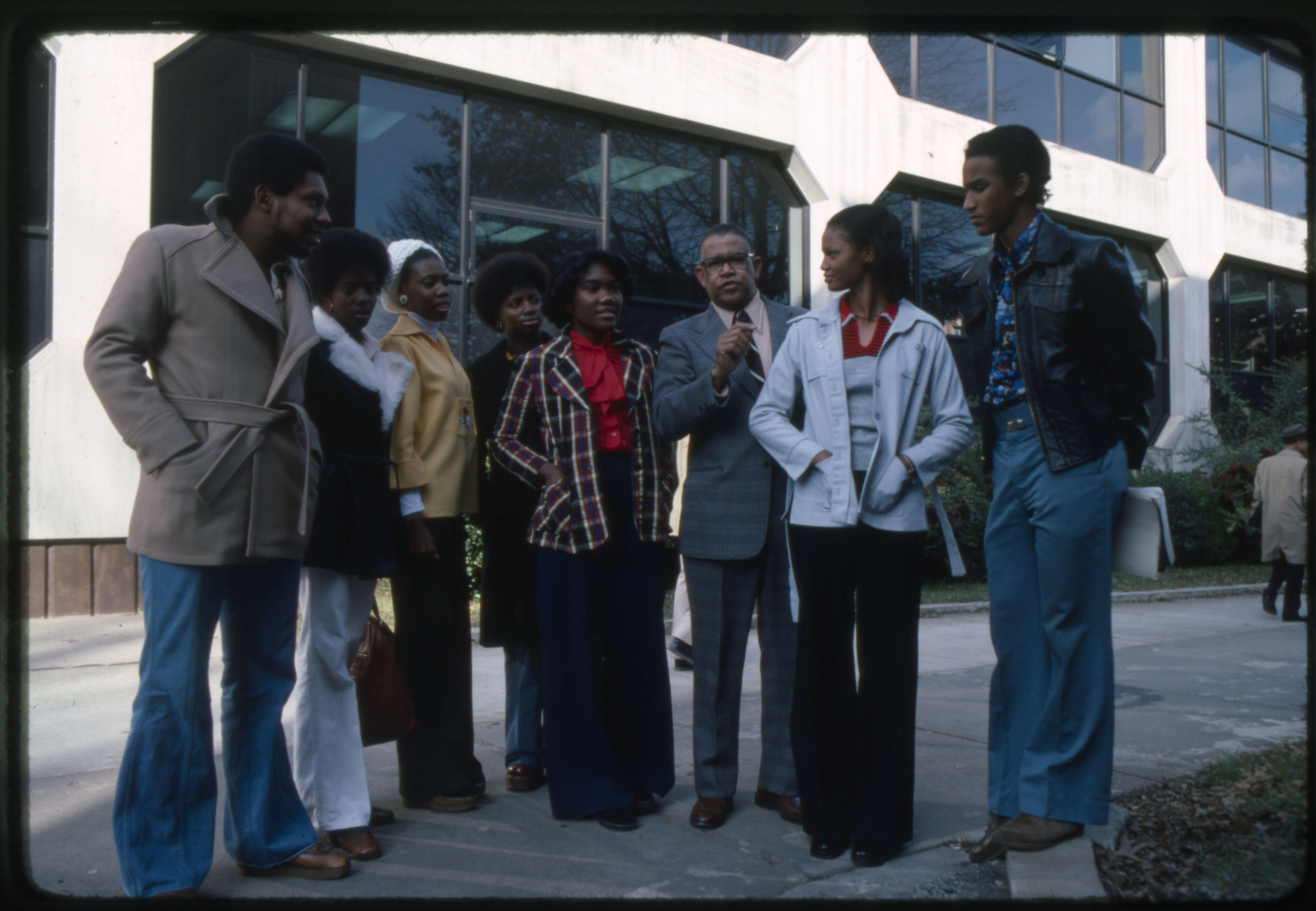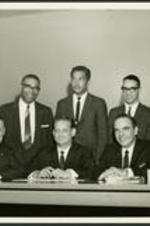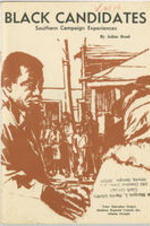
Vivian Henderson Papers
Dr. Vivian Wilson Henderson was the 18th president of Clark College from 1965 until his death in 1976. A native of Bristol, Tennessee, Henderson completed a Bachelor of Science degree in Economics from North Carolina College in Durham in 1947. He earned his Master of Arts and Doctor of Philosophy degrees in Economics from the University of Iowa in 1949 and 1952, respectively. The Vivian Wilson Henderson Papers document Dr. Henderson's personal and professional activities spanning the years 1940 to 1976. The photographs in the collection date primarily from the 1960s and document Henderson's activities at Clark College as well as his family life. Photographs of Dr. Henderson's wife, Anna, and children are included.
At the AUC Robert W. Woodruff Library we are always striving to improve our digital collections. We welcome additional information about people, places, or events depicted in any of the works in this collection. To submit information, please contact us at DSD@auctr.edu.









